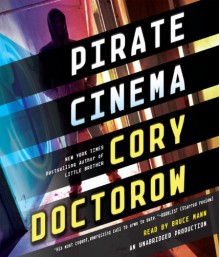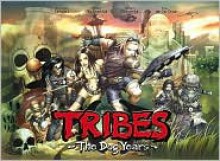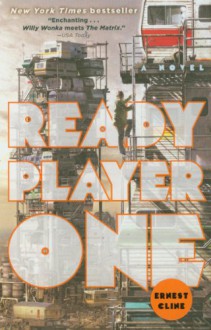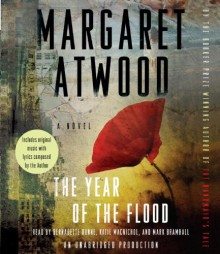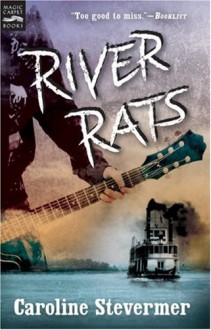Early in the year, I often spend time looking back over the last, at all the events that occurred since the previous January, and look forward to all the things that could happen in the coming months, both in my own life and across the world. Reflecting on the successes and failures of the last year, trying to learn from mistakes and continue doing what works while interpolating how these changes might affect the future are constant obsessions for many people, though it is true that humans can only really exist in the present. Thinking about this, one can feel a little wistful about the future. The past and the future are such preoccupations, the future after all is the present that will be lived later. If this is true of one’s own personal concerns, how much more compelling are conceptions of where the entirety of human society will end up?
Things are getting better, right? No, maybe they’re getting worse by the day. Are we talking about technology? Maybe this will be the year bionic organs will improve quality of life for thousands. Or, are we talking about the environment? Which major city will be impacted by a hurricane or typhoon bolstered by erratic global temperatures and rising sea levels this year, or be effected by corporate corruption? How about world politics? Maybe Minnesota will finally allow the selling of beer on Sundays or will the internet finally be reigned in by corporations. That was why for January 2014, I focused on novels dealing with an apocalyptic or dystopian near-futures.
It was definitely interesting comparing and contrasting the similar and opposing themes of these various depictions of the near (or far) future, of what will happens to the cities and landscapes of the modern human habitat; the environmental collapse and scientific chaos of Margaret Atwood’s MaddAddam series, the collapsing world held together by digital paradise of Ernest Cline’s Ready Player One, the ripped from tomorrow’s headline copyright thrills of Cory Doctorow’s Pirate Cinema, the fully realized near future cities of METAtropolis. From the traditional “after the bomb” depictions of Caroline Stevermer’s River Rats to the anarchic, childlike nostalgia of Adventure Time. In the end, they all draw upon current trends and themes, and offer some ideas of what life will be like in the future.
While the quality of the tales in the anthology METAtropolis: the Dawn of Uncivilization varied a little in my opinion, they were diverse enough in their depictions of a post-peak oil world that they are a good place to start in discussing writer's ideas of the future of cities. Neither entirely post-apocalyptic or totally dystopian, the shared world presented by the authors here seems a realistic, if worrying, picture of our coming decades. In a lot of ways, indeed, METAtropolis set the stage for the other tales I would read over the month as the roles of the environment, powerful corporations, digital worlds, and sustainability of human systems are examined. All of these topics would come to be explored in greater detail in the coming novels I read throughout the month. From Portland, to Detroit, to St. Louis, the future of these cities are very interesting.
The world depicted in Margaret Atwood's Oryx and Crake and Year of the Flood, both the corrupt near-future and the post plague apocalypse was by turns bleak and fascinating. I only recently first read Atwood's The Handmaid's Tale and was very impressed with her ability to convey the bleakness of a setting while exploring the everyday lives of the characters that live there, and this continues into the first two novels of her MaddAddam trilogy. When Snowman, Amanda, Toby, Ren, and other characters grew up, it seems that all moral and ethical concerns had been disregarded by the elite, and corporations turned DNA, the basis of life itself, into profit, not only creating such hybrids as pigoons and wolvogs but using entire populations as unwilling subjects, and forcing them to pay for the privilege. Hmm, sounds familiar. As was warned by such eco-religious groups as the God's Gardners that such decadence was unsustainable, as is warned today, the majority of humanity were killed off by Crake's culling pestilence. Created to clear off the world for his genetically engineered "perfect" humans, the Crakers, it almost comes as a relief. Still, the survivors are attempting to rebuild, and the philosophies of both the innocent Crakers and the spiritual but practical God's Gardeners was among the most interesting parts of these books for me.
Corporate tyranny and technology also plays a major role in Cory Doctorow's Pirate Cinema and Ernest Cline's Ready Player One, though instead of biotech and genetic engineering, here we see the effects of revolutions in communication technology. Pirate Cinema was by far the least "futuristic" of the novels I read in January, only debate-ably counting as a dystopia, though this also made it the most realistic, and in some ways, worrying of them. In a United Kingdom in which copyright is ruthlessly enforced by a government chained to international conglomerates, freedom is curtailed and creativity stifled, but it takes determined and passionate action to stem this tide. The protagonist, Cecil, an average kid from Northern England undergoes among the most compelling personal transformations I read, from an apolitical movie-loving kid to a committed movie-loving activist.
Ready Player One, on the other hand, could almost be set in the same world as Oryx and Crake, though focused, like Pirate Cinema, on information technology rather than biological control. Still, the 2044 world inhabited by young Wade is a bleak, depressed shadow of the modern world in which the poor (almost everyone) gather on the edges of major cities in tottering piles of trailer homes and travel becomes out of the reach of many as infrastructure rots and government stagnates. Only an open source virtual reality universe, OASIS, in which people can go to school, work, shop, and play continues to bind civilization, and it is no wonder that so much of this world is built from nostalgia. The creator of OASIS hid easter eggs in his world, based on his love of the culture of his childhood, the 1980s, which would pass along his company and fortune to any who find them. Wade, of course, becomes involved but also the world's major communication corp, willing to do anything to control OASIS as they control what remains of the "real world."
This feeling of nostalgia, looking back at when things were good in youth is a thing even without an apocalypse. This is particularly true of the most unusual book I read for this theme, the Adventure Time: Volume I graphic novel, written by Ryan North and Branden Lamb, and illustrated by Shelli Paroline. While a particularly genre defying, humorous comic drawing deeply from the quirky television show, the setting of a post-apocalyptic world hundreds of years after a "Mushroom War" which returned magic to the world, is quite evident. Even with the rainicorns and candy people, there are melancholic feelings beneath the surreal cuteness. As show creator Pendleton Ward stated in an interview, his favorite emotion was "to feel happy and sad at the same time," an idea which comes out both in the show and the comic and in many of these explorations of the future. Things rarely turn out as expected and even if changes are good, the familiarity of the past is gone forever. Adventure Time definitely draws from a lot of the same influences as Ready Player One, I feel, '80s video games and RPGs, pop culture and general childhood exuberance that makes it attractive to both kids and adults. Even its nuclear holocaust brings to mind the apocalyptic fears of the '80s.
Speaking of nostalgia, a man-made apocalypse due to a war or attack that collapsed all of society into a pre-modern world is still one of the most common tropes of what the near future will be like, though fading a little since the end of the Cold War. The lone survivor walking through a wasteland of ruined buildings and mutants, fighting to survive and scavenging old tech remains a standard trope. Tribes: The Dog Years provides a particularly stereotypical example of the genre, with little to differentiate it from any number of wasteland epics. River Rats was a much more interesting, if also flawed, exploration of a post nuclear Minnesota in which the crew of an improvised river boat on the Mississippi get involved in a quest for a hidden cash of weapons. Both, interestingly, involve adolescents as the main protagonists; in fact, the protagonists of many of these stories, even those not intended for a juvenile audience, are quite young. Could this be because it is the young who will, in their lives, be likely to have to deal with these problems and disasters?
This also highlights another interesting theme that appeared several times in these works; the inclusion of games as a counterpoint to the great game of the end of the world. This was a main theme in Ready Player One of course, but also appeared prominently in Oryx and Crake, with the MaddAddam resistance drawing its membership from "Extinctathon," an online game. One of the main survivors of the apocalypse in Adventure Time is a sentient GameBoy and in Karl Schroeder's story in METAtropolis. "To Hie from Far Cilenia", online games are creating entire sustainable societies. Some thought provoking stuff, but I think I will leave off January's reading theme on this note, though I will drop in the Decemberist's "Calamity Song," from the record The King is Dead, which sums up these themes very well.
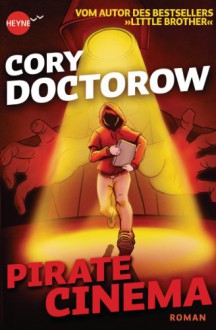

 Log in with Facebook
Log in with Facebook 


